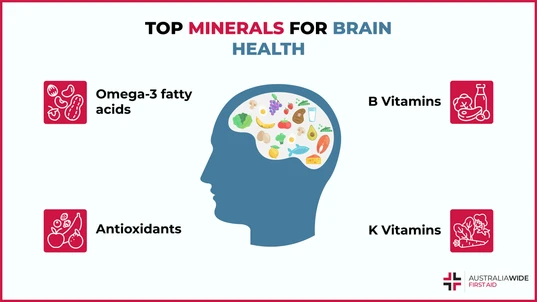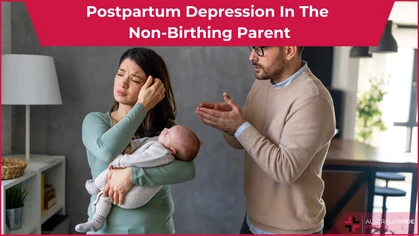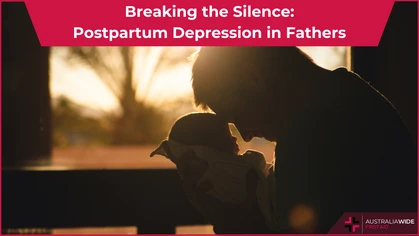14 Foods that Boost Mental Health

Mental Health

Just as it can help improve our physical health, food can help improve our mental health and cognitive function. In this article, we take a look at 14 food choices that can help boost mental health.
Did you know that there are foods that can help boost your mental health? Foods like salmon, blueberries, and almonds are all packed with nutrients that can help improve your mood, cognitive function, and overall mental well-being. By incorporating these foods into your diet, you can help to keep your mind healthy and happy!Ways food can help mental health
Foods that contain omega-3 fatty acids are particularly good for mental health. Omega-3s are a type of unsaturated fat that is essential for brain function. They can help to improve mood, reduce inflammation and protect against cognitive decline. Some good sources of omega-3 fatty acids include:- Salmon
- Mackerel
- Herring
- Tuna
- Sardines
- Flaxseeds
- Chia seeds
- Hemp seeds
- Walnuts
- Blueberries
- Blackberries
- Raspberries
- Strawberries
- Grapes
- Pecans
- Dark chocolate
- Green tea
- Eggs
- Chicken
- beef - pork
- legumes
- nuts
- seeds
1. Salmon
Salmon is a rich source of omega-3 fatty acids, which are essential for brain health. Omega-3 fatty acids help to protect the brain from inflammation and support cognitive function. Studies have shown that people who eat salmon regularly have a lower risk of developing Alzheimer's disease and other forms of dementia.2. Blueberries
Blueberries are packed with antioxidants, which can help to protect the brain from damage caused by free radicals. Free radicals are molecules that can damage cells and contribute to the development of Alzheimer's disease and other age-related conditions. Antioxidants help to neutralize free radicals and protect the brain.3. Broccoli
Broccoli is a good source of vitamin K, which is necessary for cognitive function. Vitamin K has been shown to improve memory and cognitive performance in older adults. Broccoli is also a good source of folic acid, which is important for mental health. Folic acid helps to reduce levels of homocysteine, a compound that has been linked to Alzheimer's disease and other forms of dementia.4. Dark chocolate
Dark chocolate is a good source of antioxidants and flavonoids, which can help to protect the brain from damage and improve cognitive function. Flavonoids are also known to improve blood flow to the brain, which can enhance cognitive performance. dark chocolate also contains caffeine, which can improve alertness and attention.5. Eggs
Eggs are an excellent source of choline, a nutrient that is essential for brain health. Choline is involved in the production of acetylcholine, a neurotransmitter that is important for memory and learning. Eggs also contain omega-3 fatty acids, which are beneficial for brain health.6. Green tea
Green tea is a good source of antioxidants, which can help to protect the brain from damage and improve cognitive function. Green tea also contains caffeine, which can improve alertness and attention.7. Kale
Kale is a good source of vitamins A, C, and K, all of which are important for brain health. Vitamin A is involved in the production of neurotransmitters that are important for learning and memory. Vitamin C is an antioxidant that can help to protect the brain from damage caused by free radicals. Vitamin K has been shown to improve memory and cognitive performance in older adults.8. Nuts and seeds
Nuts and seeds are a good source of omega-3 fatty acids, which are essential for brain health. Omega-3 fatty acids help to protect the brain from inflammation and support cognitive function. Studies have shown that people who eat nuts and seeds regularly have a lower risk of developing Alzheimer's disease and other forms of dementia.9. Olive oil
Olive oil is a good source of monounsaturated fats, which are beneficial for brain health. Monounsaturated fats help to protect the brain from damage caused by free radicals and support cognitive function. Olive oil also contains antioxidants, which can help to protect the brain from damage.10. Oranges
Oranges are a good source of vitamin C, an antioxidant that can help to protect the brain from damage caused by free radicals. Vitamin C is also involved in the production of neurotransmitters that are important for learning and memory.11. Pumpkin seeds
Pumpkin seeds are a good source of zinc, a mineral that is essential for brain health. Zinc is involved in the production of neurotransmitters that are important for learning and memory. Pumpkin seeds also contain omega-3 fatty acids, which are beneficial for brain health.12. Spinach
Spinach is a good source of folic acid, which is important for mental health. Folic acid helps to reduce levels of homocysteine, a compound that has been linked to Alzheimer's disease and other forms of dementia. Spinach is also a good source of vitamins A, C, and K, all of which are important for brain health.13. Tomatoes
Tomatoes are a good source of lycopene, an antioxidant that can help to protect the brain from damage caused by free radicals. Lycopene is also involved in the production of neurotransmitters that are important for learning and memory.14. Turkey
Turkey is a good source of tryptophan, an amino acid that is essential for brain health. Tryptophan is involved in the production of serotonin, a neurotransmitter that plays a role in mood and sleep. Turkey also contains omega-3 fatty acids, which are beneficial for brain health.Conclusion
Eating a diet that includes these foods can help to boost mental health and improve cognitive function. Including these foods as part of a healthy diet, along with regular exercise and a good night's sleep, can help to keep the mind healthy and prevent the onset of mental illness.Mental Health Support
Education really is the key to a society that honours mental health. Without proper education, misconceptions and stigmas can impact how mental health is viewed, and stop people from getting the help they need. Mental health is just as integral to your wellbeing as physical health. Knowing how to recognise the signs and symptoms of mental ill-health early can ensure that people get timely help. This intervention can prevent mental health crises, which can be life-threatening events. Completing a Mental Health Support Course gives you the knowledge and tools to recognise when someone is struggling or in a crisis, and how to help.
Originally published at
https://www.australiawidefirstaid.com.au/resources/food-choices-to-boost-mental-health
as part of the Australia Wide First Aid Articles Library









